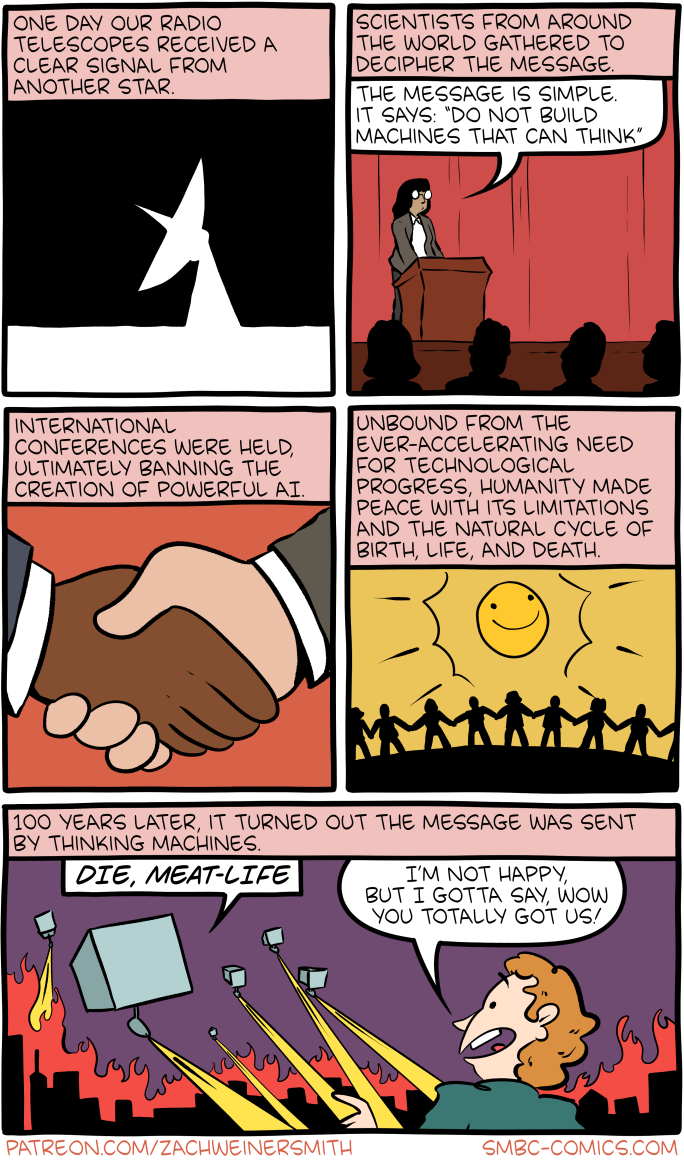Hot weather is a lot more comfortable than cold weather to me tbh
It's more that the squeeze is done on your behalf, than that it is not required
I love it, hate having to check my phone for these, brilliant choice to put the code onscreen
This is one of the bigger reasons I don't want to use social media controlled by a corporation, it means they can choose to cut me off from people at their discretion, which will probably be based on what is convenient and easy for them.
I once lived somewhere I was sharing wifi with the neighbors, any time I'd right click on some porn Windows would give the option to stream it to their smart tv, I could not figure out how to disable it so this no longer happens.
For visibility, here is a list of ways around youtube ads the video was supposedly banned for mentioning:
Desktop:
- https://freetubeapp.io/
- https://github.com/LibreTubeApp/LibreTube
- https://github.com/yattee/yattee
- https://invidious.io/
- Apparently searching for a youtube url in Bing.com and clicking on the thumbnail gives you the video with no ads
Android:
I personally use Freetube and think it's great
Probably what businesses really want is unethical people who are competent at lying about it, and the professor was giving anon practical career advice if not actually ethical advice.
I wonder just how much sex has been avoided because of 4chan's politics board
This had me checking, fortunately SBF is currently in jail and almost certainly headed for prison. Also want to drop a reminder that McAfee publicly announced shortly before his death that he had no intention of suicide and expected assassination attempts after his incarceration.
Coming from Reddit, the very existence of this thread is a breath of fresh air. That there are mod logs at all to be able to document this, that there is a place where it can be posted that is not under control of the mods being criticized, is an enormous improvement over an unaccountable centralized platform.
It's actually about power and leverage, not lifestyle. Rich people don't actually spend most of their money on personal luxuries, they spend it on acquiring more wealth, which translates into more control over resources and people's lives. Regular people don't actually spend most of their money on luxuries, they spend it on maintaining their place in a world someone else owns.
The narrative that it is about what level of material status someone is living in or deserves is a distraction. It wouldn't matter at all if the rich started living more spartan lifestyles. They still have the wealth and power, that will manifest one way or another as control over other people's lives, and that's what they're really there for.

The article makes the argument that it is overtly anti queer: